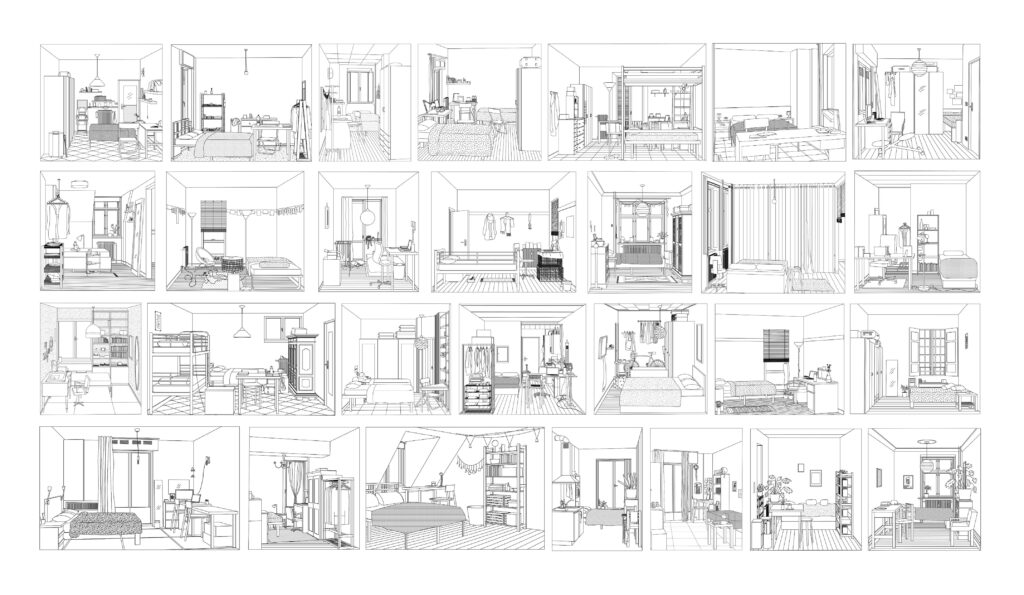
PhD Thesis submitted to the University of Copenhagen and the University of Bologna. Defended on 28 June 2024.
This thesis explores the aesthetics of today’s ordinary, domestic interiors. With an interdisciplinary approach, it maneuvers across literary and cultural studies, ethnography, and architecture, to explore the art of temporary living through objects and practices. The thesis is divided into three parts with interconnected objectives. Part I establishes a theoretical and methodological framework for exploring domestic interiors based on Georges Perec’s works. It examines two main themes: objects and practices. The analysis of objects traces Perec’s evolution from a Barthesian semiotic approach in Les Choses (1965) to recognizing the entanglements of humans and things in La Vie mode d’emploi (1978), pre-echoing theories of the Material Turn. This shift stems from Perec’s interest in lived spaces and everyday life during the 1970s. The analysis of practices, focusing on the “art of living,” contextualizes Perec within the French everyday life studies tradition, drawing on Henri Lefebvre and Michel de Certeau, enriched by Richard Shusterman’s somaesthetics. The discussion highlights how inhabiting interiors relates to the art of living and concludes with the domestic space as its primary locus. Part II, the “Rooms Catalogue,” is a collection of 28 rooms in Bologna and Copenhagen. It features 28 sets of textual vignettes and original drawings based on an artistic-ethnographic project carried out to capture snapshots of domestic interiors and temporary living arrangements of young people, particularly students. Part III returns to Part I’s structure of objects and practices and applies it to insights from Part II to analyze domestic interiors. Combining cultural criticism, interview voices, and diverse sources, it offers a mosaic of analyses on certain objects and practices of temporary living. The thesis offers a subversive critique of design cultures, aesthetic regimes, and contemporary domestic culture.
